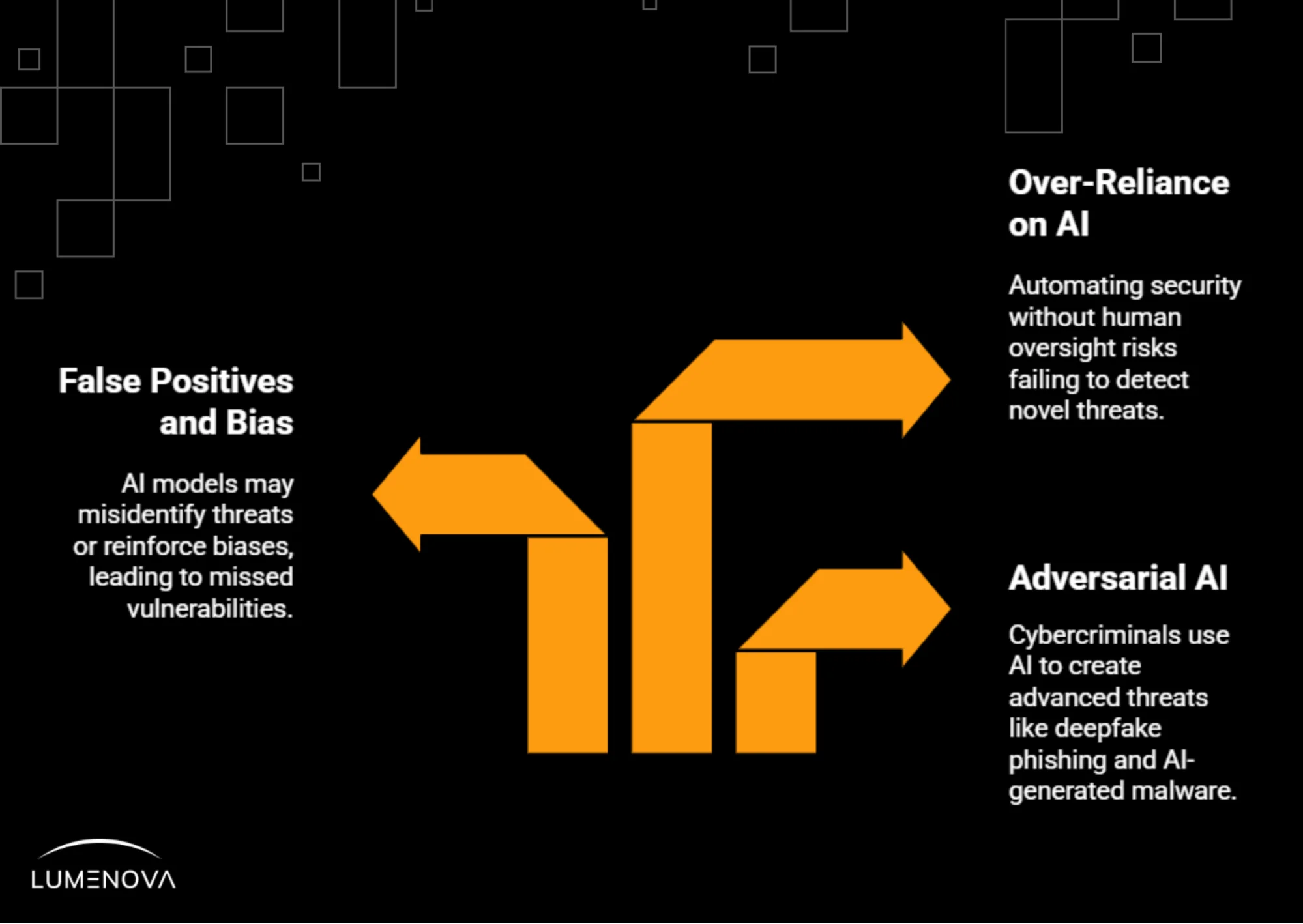AI in Cybersecurity
The Role of AI in Cybersecurity
AI is transforming cybersecurity by enhancing threat detection, automating responses, and reducing human error. AI helps identify vulnerabilities, predict attacks, and secure networks against evolving threats. Cybersecurity solutions leverage machine learning to improve efficiency and reduce response times, making them essential for modern security strategies.
How AI is Used in Cybersecurity
1. Threat Detection and Prevention
AI cybersecurity tools analyze vast amounts of data to detect suspicious patterns in network traffic, emails, and system behavior. These tools help prevent malware infections, phishing attacks, and unauthorized access before they cause damage. Using AI for cybersecurity strengthens protection against both known and emerging cyber threats.
2. Automated Incident Response
AI-powered cybersecurity automates responses to cyber threats, isolating compromised systems, blocking malicious traffic, and alerting security teams in real time. This minimizes human intervention and speeds up mitigation efforts.
3. Risk Assessment and Predictive Analysis
By analyzing historical data, experts can predict potential security risks and suggests preventive measures. Generative AI models improve risk assessments by simulating potential cyberattacks and testing security defenses.
Challenges and Risks
While AI enhances security, it also introduces challenges:

- False Positives and Bias: AI models may misidentify threats or reinforce biases, leading to unnecessary interventions or missed vulnerabilities.
- Over-Reliance on AI: Automating security without human oversight can create risks if AI systems fail to detect novel cyber threats.
- Adversarial AI: Cybercriminals use AI to develop more advanced threats, such as deepfake phishing and AI-generated malware.
Ethical Considerations
Ensuring ethical AI use is critical. Organizations must balance automation with transparency, ensuring decisions align with privacy regulations and industry standards. Frameworks help companies implement responsible AI security strategies while maintaining AI compliance.
The Future of AI in Cybersecurity
AI will continue to reshape cybersecurity, evolving alongside digital threats. Companies are investing in top AI cybersecurity solutions to enhance risk assessments, improve response times, and strengthen network defenses. AI will play a crucial role in safeguarding businesses, governments, and individuals from emerging cyber risks. As AI adoption grows, so will the need for cybersecurity AI tools that ensure adaptive, intelligent, and proactive defense mechanisms.
Frequently Asked Questions
AI enhances cybersecurity by improving threat detection, automating responses, and reducing human error. It analyzes vast amounts of data to identify vulnerabilities, predict attacks, and secure networks against evolving threats. This results in faster response times and more efficient protection against both known and emerging cyber risks.
AI in cybersecurity is used for threat detection and prevention by analyzing network traffic, emails, and system behavior to detect malware, phishing attacks, and unauthorized access. It also enables automated incident response by isolating compromised systems, blocking malicious traffic, and alerting security teams in real-time. Additionally, AI improves risk assessment and predictive analysis by analyzing historical data to anticipate potential security risks and recommend preventive measures.
While AI strengthens security, it also introduces challenges such as false positives and biases that may misidentify threats, over-reliance on automation that can create risks if AI fails to detect novel threats, and adversarial AI techniques where cybercriminals use AI to develop more advanced threats such as deepfake phishing and AI-generated malware.
Ensuring ethical AI in cybersecurity involves balancing automation with transparency. AI cybersecurity frameworks should align with privacy regulations and industry standards to ensure responsible AI security strategies. Regular audits, human oversight, and bias mitigation techniques are crucial to maintaining ethical and unbiased AI-driven security decisions.
AI will continue to reshape cybersecurity as digital threats evolve. Preparing for this shift requires investing in AI-driven cybersecurity solutions that enhance risk assessments, improve response times, and strengthen network defenses. Developing adaptive, intelligent, and proactive defense mechanisms while prioritizing ongoing AI training for cybersecurity teams ensures effective integration and use of AI technologies.
AI-driven cybersecurity has a significant impact on business strategy by improving operational efficiency, reducing cybersecurity-related costs, and enhancing organizational resilience against cyber threats. AI-powered security solutions also provide valuable insights that contribute to data-driven decision-making and risk management across various business functions.
The ROI for AI in cybersecurity varies depending on factors such as implementation scale, security needs, and threat landscapes. Many organizations report cost savings from reduced breach incidents, improved operational efficiency, and enhanced threat detection capabilities. Evaluating ROI requires analyzing reduced financial losses from cyber threats, increased productivity, and the overall impact on business continuity.